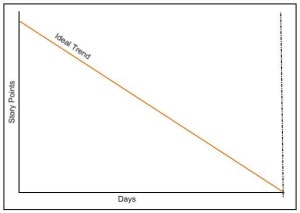Effective data management is crucial, Database Management Systems (DBMS) are used in this situation. Software for managing, storing, and retrieving data from databases is called a database management system (DBMS).
MySQL is one such popular DBMS. In this article, we will explore the importance of MySQL with its uses and discover why it is so important in databases.
What is MySQL?
MySQL is an open-source, Relational Database Management System that stores data in a structured format using rows and columns. It’s software that enables users to create, manage, and manipulate databases. Developed by MySQL AB, which is now owned by Oracle Corporation, MySQL is renowned for its reliability, scalability, and ease of use.
Why Use MySQL
MySQL is a popular choice for managing relational databases for several reasons:
- Open Source: MySQL is open-source software, which means it’s free to use and has a large community of developers contributing to its improvement.
- Relational: MySQL follows the relational database model, allowing users to organize data into tables with rows and columns, facilitating efficient data storage and retrieval.
- Reliability: MySQL has been around for a long time and is known for its stability and reliability.
- Performance: MySQL is optimized for performance, making it capable of handling high-volume transactions and large datasets efficiently.
- Scalability: MySQL can scale both vertically and horizontally to accommodate growing data and user loads. You can add more resources to a single server or distribute the workload across multiple servers using techniques like sharding or replication.
- Compatibility: MySQL is widely supported by many programming languages, frameworks, and tools. It offers connectors and APIs for popular languages like PHP, Python, Java, and more, making it easy to integrate with your existing software stack.
- Security: MySQL provides robust security features to protect your data, including access controls, encryption, and auditing capabilities. With proper configuration, you can ensure that only authorized users have access to sensitive information.
Applications of MySQL
MySQL has used in various applications across a wide range of industries and domains, because of to its versatility, reliability, and performance. Here are some common applications of MySQL:
- E-commerce: MySQL is extensively used in e-commerce platforms for managing product catalogs, customer data, orders, and transactions.
- Content Management Systems (CMS): Many popular CMS platforms rely on MySQL as their backend database to store website content, user profiles, comments, and configuration settings.
- Financial Services: MySQL is employed in financial applications, including banking systems, payment processing platforms, and accounting software, to manage transactional data, customer accounts, and financial records.
- Healthcare: MySQL is used in healthcare applications for storing and managing patient records, medical histories, treatment plans, and diagnostic information.
- Social Media: MySQL powers the backend databases of many social media platforms, including user profiles, posts, comments, likes, and connections.
Difference Between MySQL and SQL
MySQL | SQL |
|---|---|
| MySQL is a Relational Database Management System (RDBMS) that uses SQL (Structured Query Language). | SQL (Structured Query Language) is a standard language used for communicating with relational databases. |
| MySQL is open source and accessible to any and everyone for free. | It is not an open-source language. |
| MySQL supports basic programming languages like C, C++, Python, Ruby, etc. | SQL is in itself a Query language used for database systems. |
| MySQL available only in the English language. | SQL is available in different languages. |
| MySQL doesn’t support user-defined functions and XML. | SQL supports user-defined functions and XML. |
Conclusion
MySQL stands out as a powerful and versatile open-source Relational Database Management System. Its reliability, scalability, performance, and compatibility make it a preferred choice across various industries, from e-commerce to healthcare and social media.
With its robust security features and widespread support, MySQL remains an essential tool for efficiently managing and manipulating data in the modern world.


No comments:
Post a Comment